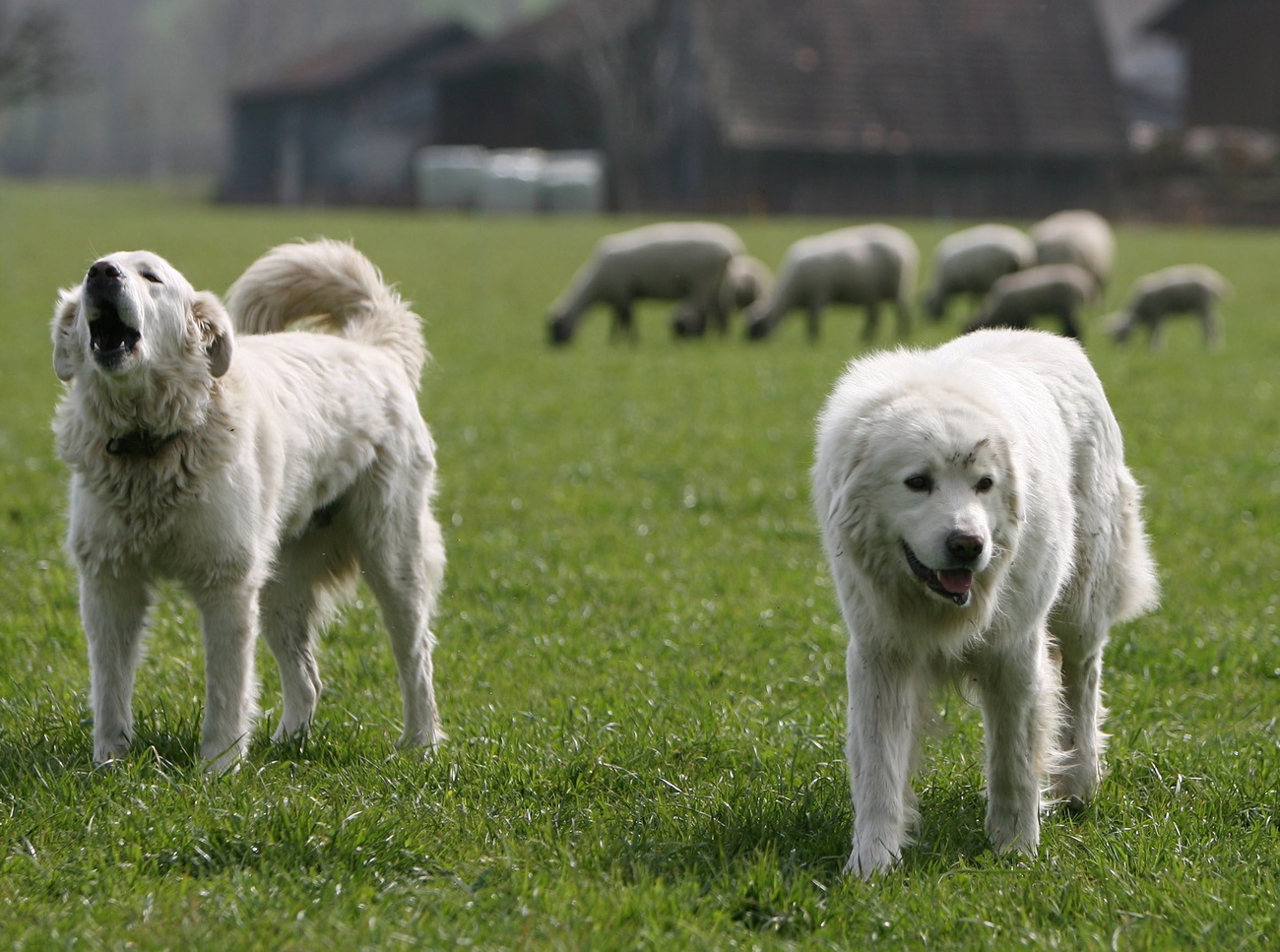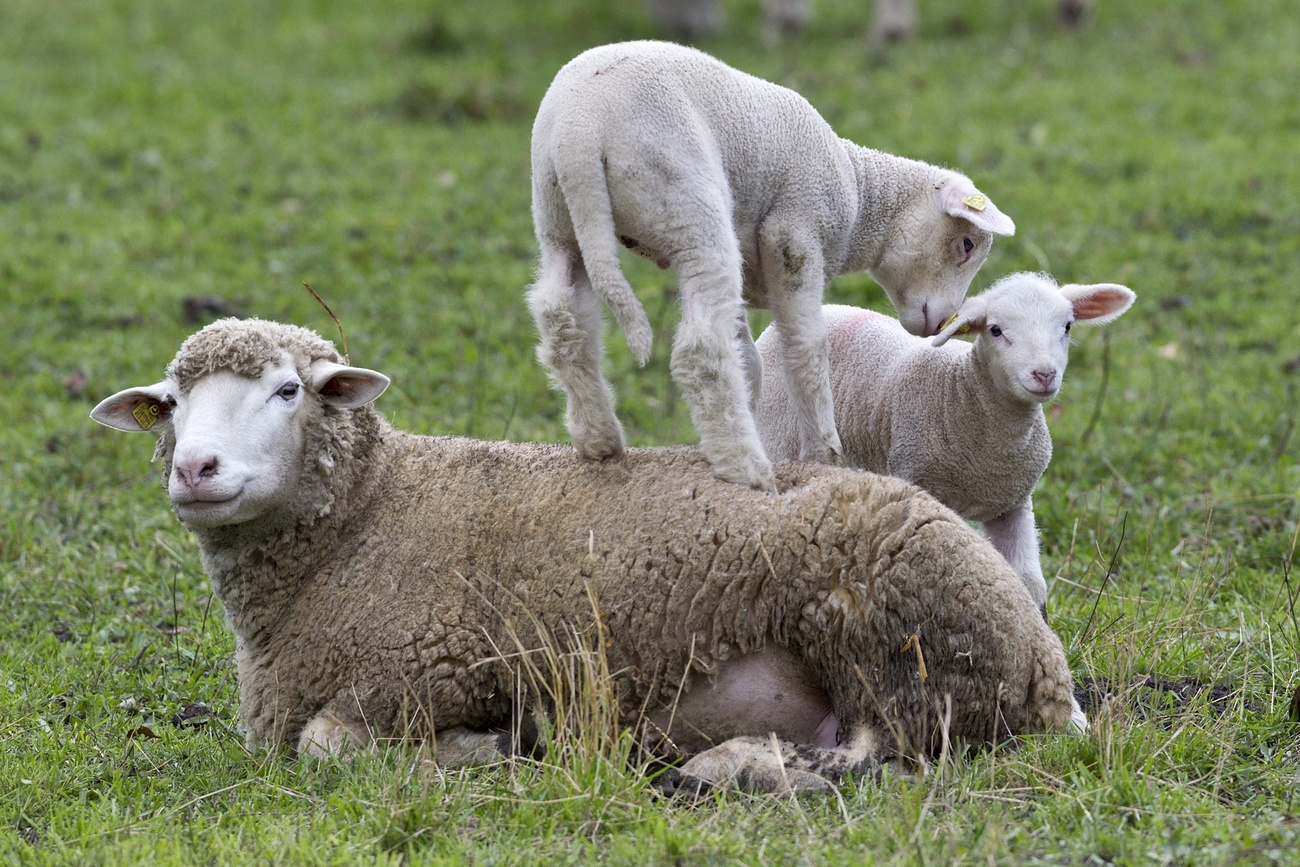
Protecting livestock from predators costs Swiss taxpayers millions

The federal government spends CHF4 million (around $4.4 million) a year to minimise the damage caused by predators like wolves and lynx.
Of this amount some three million Swiss francs are being invested in the protection of herds and flocks, the government revealed in its response to a question from a parliamentarian. Farmers receive around 70% of the funds for the breeding, training and upkeep of herd protection dogs, as well as for the installation of fences and night pens.
Around 20% of the funds are used to finance two specialist agencies with expertise in herd protection dogs and use of technical anti-predators tools. The remaining 10% goes to the cantons (states) for planning work.
The remaining one million francs are spent on compensating farmers for loss of livestock and scientific research. Compensation for wolf attacks is paid jointly by the federal government and the cantons with the former bearing 80% of the costs, i.e. CHF138,000 per year. The scientific monitoring of large predators – wolves, lynx, bears and golden jackals – costs CHF650,000, while genetic analyses amount to almost CHF200,000.
After complete extermination of the species by the end of the 19th century, the wolf is making a comeback by migrating via the French and Italian Alps. The first sightings were reported in 1995 and the first known pack was identified in 2012. Now there are at least nine wolf packs in the country with an estimate of around 80 animals in total.

More
Livestock and beehives to be better protected from bears

In compliance with the JTI standards
More: SWI swissinfo.ch certified by the Journalism Trust Initiative




























You can find an overview of ongoing debates with our journalists here . Please join us!
If you want to start a conversation about a topic raised in this article or want to report factual errors, email us at english@swissinfo.ch.